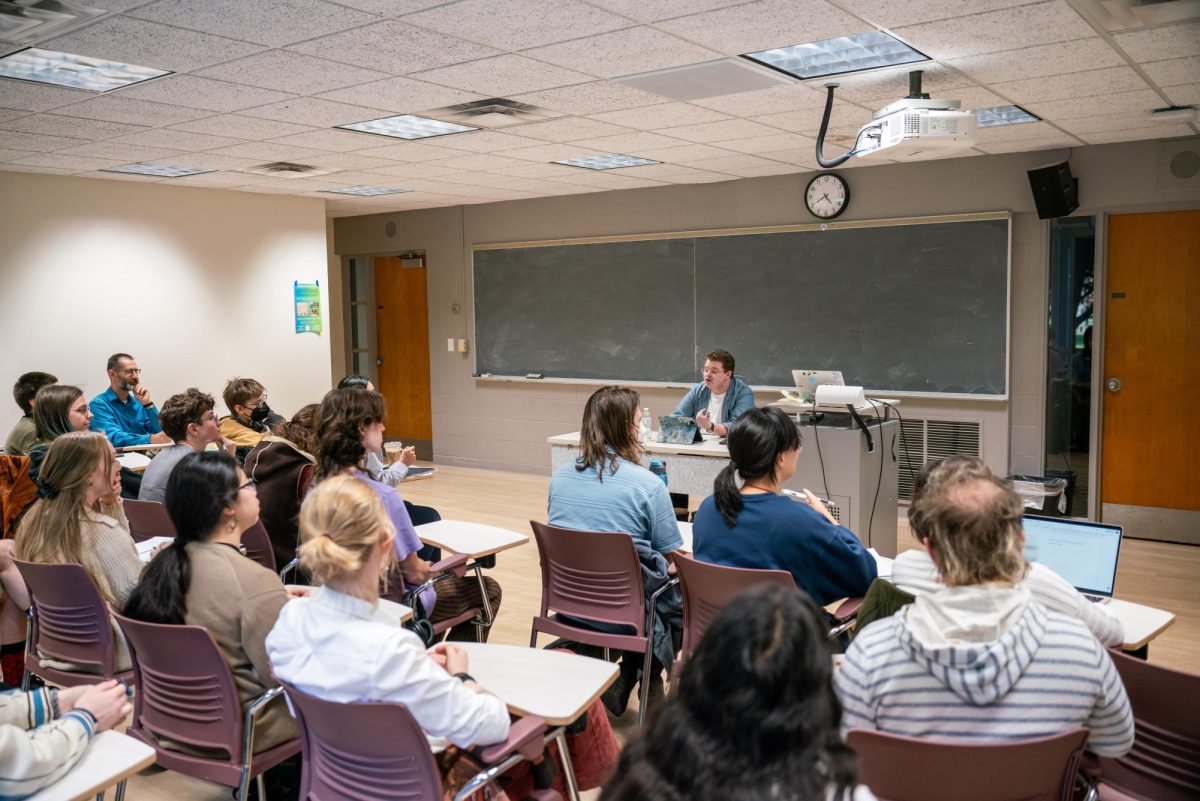On Oct. 8, Carissa Chappell gave a talk titled “Leaving No Trace: Reading the Asexual Possibility in an Ancient Greek Novel” which discussed their award-winning paper on sexuality in ancient Greek novels. They deconstructed the notion of the boy-meets-girl trope in The Adventures of Leucippe and Cleitophon, a notable (debunked) erotic ancient Greek text. Chappell noted the importance of viewing ancient texts from new angles.
“Of course [boy and girl] would be together, but they can’t,” Chappell said. “That’s a pretty big assumption that the existence of asexuality undermines. Not everyone is experiencing this thing that you say is universal.”
Chappell is this year’s winner of the John J. Winkler Memorial Prize. This award is given to an undergraduate or graduate student who writes an essay that covers underrepresented and risky topics within Classics. Chappell is currently a graduate student at the University of California, Santa Barbara, with interests in pre-theory, disability theory, disability justice, and queerness in Classics. Throughout their research as an undergraduate student and beyond, they have admired Winkler’s scholarship surrounding queerness in classics.
“I’ve been reading and citing [John J. Winkler] for a while,” Chappell said. “He died of AIDS and the fund was established. It’s meant to reward scholars who are young and doing things that would otherwise be frowned upon in the field.”
Inspired by Winkler’s work, Chappell has written various versions of their award-winning paper in seminar courses and at a presentation at a conference. They stressed how important this passion project has been and why it means so much to them.
“I’ve always loved languages, reading, and writing,” Chappell said. “It was really exciting to realize not only that I could do that and it would pay me but that I could have original thoughts about things. … That’s how I view my research, generally. I am arriving at a very, very, very long conversation.”
Throughout Chappell’s lecture, they highlighted how classical texts are often viewed from a heteronormative lens that forces asexuality into the margins of modern classics studies. Students who attended the lecture noted their appreciation for the fresh perspective Chappell brought to The Adventures of Leucippe and Cleitophon.
“I think it’s fascinating when people can [grasp] new things from such old text,” College fourth-year Amy Zhang, a Classics and History major, said. “At a certain point, there’s only so much you can say about the Iliad. Everyone’s read the Iliad, but there’s always more. This was a fascinating new lens. It’s really fun to see new queer perspectives.”
College fourth-year Charley Schmidt, another Classics major, felt that Chappell’s queer perspective lends itself to a new political interpretation of classics.
“It’s always exciting when viewing classics through a queer perspective,” Schmidt said. “It unwraps Classics from the conservative ideas that have been pushed for years and years.”
Chappell hopes to continue revealing modern topics in ancient literature through their career. Chappell noted their plan to obtain their Ph.D., advance to candidacy, and write their dissertation with the goal of teaching and continuing research.
“Ancient fiction exists, and so does asexuality,” Chappell said. “That’s pretty much it.”









